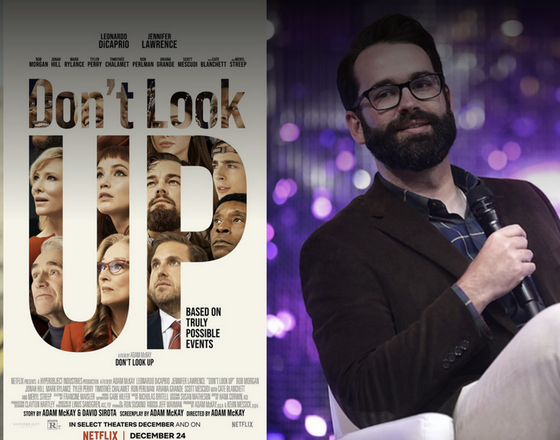Power Thrives on Rigid Labels. Democracy Thrives on Values.
How an amoral metaphysics enables social power to influence shared cultural dialogue in an untold number of ways. Thankfully there's a solution.

One of the central failures of Bernie Sanders and much of the modern American left is a persistent failure to clearly distinguish socialism from democratic socialism, and more broadly, a failure to appreciate what kind of power each actually entails. When asked about the socialist label, Bernie has been all too proud to speak of how great that term is while seeking economic justice and that Americans were wrong to think otherwise.
Following much of Bernie’s lead the “socialist” label is often worn casually, even proudly, among American leftists since Bernie's rise. What goes largely unexamined though - is what that label quietly smuggles in: not care, not fairness, but an acceptance of social-level power concentrating under the cover of higher intellectual or moral authority. Cries that capitalism’s immorality can only be solved through socialism or communism are common, but they miss the deeper problem entirely.
The issue isn’t capitalism as such - it’s what values control culture, and who and what gets to enforce them.
Under socialism or communism, elites don’t disappear; they simply rule in a different way. Power concentrates in the hands of those who claim superior knowledge, superior theory, or superior moral insight. Control is exercised not openly as social power, but indirectly through intellectual authority - through “reason”, “expertise”, and claims of technocratic inevitability. Exploitation doesn’t vanish; it’s concealed and justified as rational, unavoidable, or morally required in the name of the greater good.
Democratic socialism, by contrast, at least aims to keep power with the people rather than surrendering it to a self-authorising intellectual class. An informed public, representing intellectual and Dynamic morality, can curtail social-level power rather than merely replacing one elite with another.
Of course, democratic socialism is not without risks. Corruption of elected officials, institutional inertia, and complacency are all real dangers.
Capitalism, meanwhile, plays a more nuanced role than it’s usually given credit for by these socialist types. Its financial incentives often provide genuine responsiveness to Dynamic Quality - to change, innovation, and adaptation - in ways centrally organised systems frequently struggle to match. That responsiveness matters, and when it works well it can surface new value quickly.
But capitalism also carries a serious moral flaw of its own. It has a tendency to quietly smuggle social-level power in under the banner of Dynamic success. Wealth accumulation, market dominance, and scale are too easily mistaken for proof of superior value, when in reality they often reflect the consolidation of power rather than the emergence of better ideas or practices. Left unchecked, capitalism doesn’t just respond to Dynamic Quality - it converts social power into permanence, allowing those who win early or win big to shape the rules in their favour. Capitalism alone, then, is no more virtuous than socialism alone. Both become immoral when they’re absolutised.
Calls for pure capitalism or pure socialism are therefore deeply flawed, not because each lacks moral intention, but because both allow social-level power to masquerade as something higher. Socialism tends to justify power through claims of intellectual or moral certainty. Capitalism tends to justify it through claims of market success and efficiency. In both cases, social-level power sneaks in beneath a higher moral code and then shields itself from challenge.
A functioning democracy is different. It is not a moral system run by the socially powerful. Its value lies in its ability to respond to Dynamic Morality. Democracy matters not only because it allows a minority to become a majority, but also because its function is to prevent a socially powerful minority from imposing its will on the majority. When functioning correctly, it keeps social-level power unstable, accountable, and open to correction.
From an MOQ perspective, democracy’s moral strength is precisely this openness. It does not freeze value at the social or intellectual level. Instead, it creates the conditions under which better ideas, better arrangements, and better values can emerge over time. When democracy fails, it is usually because this Dynamic function has been undermined, not because democracy itself was the problem.
This is also why the endless framing of politics as a simple battle between “left” and “right” has become so unproductive. These labels increasingly obscure more than they reveal. They collapse complex moral questions into tribal identities and encourage people to defend camps rather than examine values. Democracy is not about choosing between rigid ideological extremes - socialist, capitalist, fascist, or otherwise - but about maintaining a culture capable of evaluating and revising its values over time.
When politics is reduced to label warfare, attention shifts away from whether ideas improve lives and toward whether they signal loyalty to a side. This replaces Dynamic intellectual moral inquiry with static ideological allegiance. The result is not democratic vitality but cultural stagnation, where extremes feed off one another and genuine moral progress is crowded out by symbolic conflict.
This left–right framing is also highly useful to social-level power. By organising politics around opposing identities rather than shared values, power becomes harder to see and easier to excuse. Decisions that shape culture and material life can be blamed on “the other side” instead of traced back to concentrated influence operating above those divisions. This redirects conflict horizontally between groups, preventing it from turning vertically toward the social power that actually shapes culture and undermines democracy’s intellectual and Dynamic function.
Take deindustrialisation and deregulation, for example. These policies, most responsible for hollowing out the American middle class, were not the product of a single party or a sudden moral failing among voters. They were the result of decades of elite-driven neoliberal policy embraced across the political spectrum and justified through an amoral metaphysics that presented this economic framework as objective, inevitable, and beyond democratic challenge. Communities were dismantled, jobs shipped overseas, and social bonds eroded in the name of efficiency and growth as defined by those already in positions of power.
Parties on both sides whilst all this was happening were disagreeing for sure. But not coincidentally only one set of values found its expression - that of the socially powerful.
This is precisely what the Metaphysics of Quality makes visible: morality is not found in rigid idealistic systems, but in how well cultures remain open to Quality and un-corrupted by the socially powerful over time.
The real failure of the American left generally, then, has been its growing comfort with elitist attitudes and its failure to clearly distance itself from them in the public consciousness. This failure has led to the increasingly accurate equation of “leftist” with “elitist” in the minds of many working-class voters. It wasn’t simply that the working class “turned right”; it was that they were abandoned, dismissed, or spoken down to by people who claimed moral authority while neglecting material and social realities.
This attack on “elitist leftists” by the American right still hasn’t ended. And it continues to land because the underlying attitudes that provoked it - moral policing, condescension, and a refusal to listen - have not meaningfully changed.
This persistence is due to a continued blind spot across much of the American left itself: a failure to recognise how social-level power continues to shape not only the culture at large, but their own understanding of it. Through the lens of the Metaphysics of Quality, this is a familiar mistake - confusing social status and intellectual confidence with intellectual morality, and mistaking certainty for clarity.
Rather than listening to or materially helping people who had been economically and culturally hollowed out, the left has increasingly defaulted to scolding. A set of ‘woke’ attitudes emerged that functioned less as expressions of care and more as mechanisms of social control. Language, posture, and symbolic purity became the focus, while material conditions were sidelined.
Scolding is the primary way power relates to the people. This is not how healthy cultures are built. It is how elites manage populations they do not want to understand or meaningfully engage with.
To top it all off - technology hasn’t helped either. Rather than just opening culture up to better ideas, it has overwhelmingly rewarded outrage, straw-man over-simplification, and tribal loyalty. Modern American political influencers on both sides feed off rapid news cycles and algorithmic incentives that encourage blind allegiance to one social-level side. This technology-driven dialogue replaces open intellectual inquiry with social-level allegiance. Disagreement is treated as betrayal rather than an opportunity for improvement.
The result of all this is a culture increasingly convinced that it is deeply and irreparably divided. But this framing is profoundly misleading. What appears as division is more accurately a population that has been fragmented by narratives shaped by social-level power. Narratives that benefit from distrust, resentment, and perpetual conflict.
The rise of the authoritarian modern right did not emerge from nowhere then, nor was it simply the product of ignorance or manipulation. It arose from the material and cultural vacuum left behind when bi-partisan policies stripped people of stability, dignity, and meaningful work. And politicians did so while keeping folks divided and that these economic circumstances were merely the neutral operation of the economy and not something in their control or up for discussion.
When the damage became impossible to ignore, the response from the socially powerful on both sides was not listening or reform, but further moral chastisement. Blaming the poor for their own failures. Structural harm was reframed as personal or cultural failure, allowing elites to avoid responsibility for the conditions they had helped create.
From an MOQ perspective, this is exactly what happens when social-level power hides behind an amoral intellectual framework. The degradation of culture toward reactionary social quality is rebranded as inevitable, and the resulting anger is pathologised rather than understood.
What followed was not a mysterious turn toward reaction, but a predictable response to a culture quietly hollowed out in the name of social-level power, all in plain sight.
The popularity of One Battle After Another among American left audiences is a telling example of this intellectually blind attitude of elites. It's structured around opposition rather than discovery. Its narrative defines characters and meaning through fixed camps, where the enemy is already known and resistance is the only remaining task. Because the story depends on maintaining this clarity, it never turns its attention to the deeper forces that produced the conflict in the first place. Power remains offstage, while identity and opposition take centre stage.
This makes the film counterproductive to what it most needs to do. At the moment the culture requires a renewed focus on shared values and the structures shaping division, the film reinforces a left-versus-right framing that stabilises social-level identities instead of opening space for intellectual or Dynamic inquiry. Division is not a result of the story. It is a requirement of its narrative logic.
Don’t Look Up - the other popular political film from recent times - for all its strengths, suffers from a different but related limitation. It builds its narrative around the gap between those who know the truth and a public that refuses to act. The tension of the story comes from apathy, distraction, and denial in the face of overwhelming evidence. Catastrophe is framed as the result of cultural un-seriousness rather than structural design.
What the narrative largely leaves unexplored is how that apathy was produced. Media, incentives, and elite interests appear as absurdities rather than as forms of social-level power shaping behaviour at scale. The story stops at intellectual failure without tracing the suppression of intellectual and Dynamic Quality that made such failure predictable. The result is a satire that directs frustration toward the public, rather than toward the forces that benefit from confusion and inaction.
Because despite everything, people still do share remarkably similar underlying values: meaningful work, security, distrust of elites, and a genuine voice in shaping their future. What is fractured: is not the culture itself, but the language and metaphysics people are given to understand it.
Until that manipulation by the socially powerful is named explicitly, carefully, and without contempt, the same mistakes will continue to be made and the unproductive divisions will persist. Reminding folks of the social powers control doesn't solve the problem by itself. But what it does do is restore the culture’s ability to redirect conflict away from symbolic enemies and back toward the values and concentrations of power that can actually be corrected and change things for the better.
And this right here is one of the many strengths of the Metaphysics of Quality. It provides common folks a language and framework that is both logical and morally sound. It keeps evolutionary conflicts of morality at the front of mind whilst they evaluate elite suggestions. And the key here is that with this better metaphysics they can uniquely do so in the intellectual language of the elites. Thus uniquely enabling common folks to perform their vital role in ensuring both Dynamic and intellectual morality are served. And that’s a very powerful thing indeed!











